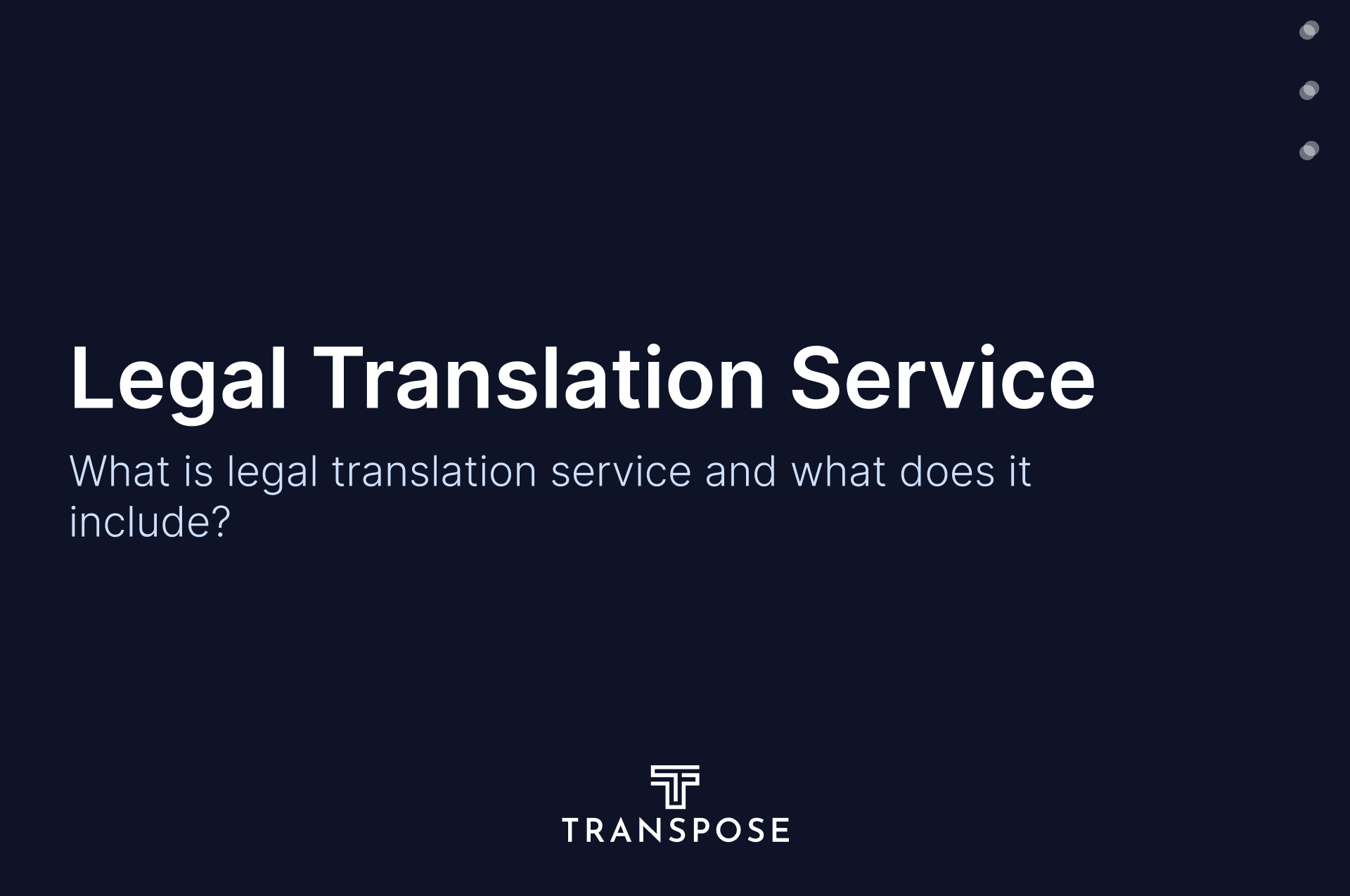Legal translation service is the specialized process of converting legal documents from one language to another while keeping their exact legal meaning, validity, and enforceability. This work requires translators who understand both the source and target legal systems, not only the languages themselves.
Unlike general translation, legal translation demands complete accuracy. Even a small error can void a contract, disrupt a court case, or create compliance issues.
Core Components of Legal Translation Service
Professional legal translation involves several key elements that help your documents keep their legal force across languages and jurisdictions. Each element supports reliable translations that courts, agencies, and business partners will accept.
Document Translation with Legal Precision
Legal translation covers many types of documents that require careful handling. For example, an organization may need translation for contracts and agreements. Each clause must keep its binding nature and enforceability in the target jurisdiction.
Court documents also need special attention. These include case filings, judgments, witness statements, and trial transcripts. Your legal counsel can use them to build stronger cases or respond to international litigation.
Corporate documents such as articles of incorporation, board resolutions, and shareholder agreements require translation when a company expands internationally.
Specialized Legal Expertise
Professional legal translators bring more than bilingual ability. They understand legal concepts, terminology, and key differences between jurisdictions. A translator must know how common law and civil law systems vary so concepts are translated correctly, even when no direct equivalent exists.
This expertise prevents harmful mistranslations. For example, misinterpreting "consideration" as mere “thoughtfulness” instead of its legal meaning of exchanged value can cause major issues. Accurate translation of these nuances helps your business avoid disputes.
Certification and Authentication
Many legal translations must be certified before courts, immigration authorities, or regulators will accept them. Certified translations include a signed statement confirming accuracy and completeness.
Some jurisdictions require sworn translations, where translators take an oath before authorities. Your compliance team should confirm which certification level each receiving authority needs to avoid document rejection.
For international use, translations may also require an apostille or consular legalization. These steps verify the translator’s credentials and confirm the document’s validity across borders.
Types of Legal Documents Requiring Translation
Knowing which documents need legal translation helps your team plan and budget for projects. Different document types present unique challenges and certification needs.
Litigation and Dispute Resolution Documents
Court proceedings create many documents that require translation, from initial complaints to final judgments. Your litigation team depends on translated depositions, expert reports, and evidence exhibits to support international cases.
Arbitration also involves parties who speak different languages. Arbitration agreements, procedural orders, and awards all need accurate translation. These translations must keep the exact legal language that affects enforceability across jurisdictions.
Corporate and Commercial Documents
International business deals rely on accurate translations of purchase orders, contracts, and complex joint venture agreements. Your deal team needs these translations to ensure every party understands their rights and obligations.
Intellectual property documents—such as patents, trademarks, and licensing agreements—require specialized translation. These translations must remain technically accurate while meeting legal filing requirements. Your IP counsel can file them with patent offices worldwide.
Immigration and Personal Status Documents
Immigration applications often require certified translations of birth certificates, marriage certificates, and educational credentials. HR teams need these translations when sponsoring international employees or managing global mobility efforts.
Estate planning documents—including wills, trusts, and powers of attorney—require translation when assets or beneficiaries span multiple countries. Because these documents involve important personal wishes, they require complete accuracy.
How to Choose the Right Legal Translation Service?
Selecting the right legal translation provider protects your organization from errors and compliance problems. Consider the following factors when comparing services.
Check Translator Qualifications and Credentials
Confirm that translators have relevant legal qualifications or certifications from recognized bodies such as ITI (Institute of Translation and Interpreting). Your procurement team should ask for proof of legal training or extensive experience in legal translation.
Native-language skills in the target language ensure natural, legally appropriate phrasing. Your contracts will read as if they were originally written in that language, not as awkward translations.
Get to Know Security and Confidentiality Measures
Legal documents often contain sensitive details, so strong security protocols are essential. Professional services use NDAs, encrypted file transfers, and secure storage to protect your data.
Ask about data retention policies and server locations. Reputable providers store documents on secure servers within jurisdictions with strong data protection laws. Your information security team can confirm whether these measures meet your standards.
Consider Turnaround Time and Scalability
Legal matters often run on tight deadlines, so turnaround time matters. Professional services can offer urgent translation options for time-critical filings while maintaining accuracy.
For large projects such as due diligence or regulatory submissions, confirm that the service can scale without losing consistency. Your project managers need reliable delivery timelines to coordinate with other work.
Need legal translation services? Submit your document and get a quote to get started.
Services & Resources to Explore
- Which Documents Need Legal Translation? [2025] – Guide to identifying documents that require professional legal translation
- Sworn, Notarised, Certified, and Official Translations: Understanding the Differences – Breakdown of certification types
- What Is Legal Translation? Definition, Types, and Importance – Overview of core legal translation concepts
- ISO 17100 vs ISO 18587: Key Differences – Comparison of translation quality standards
Explore our certified legal translation services and work with ISO-certified translators who understand your industry and your target legal systems.
